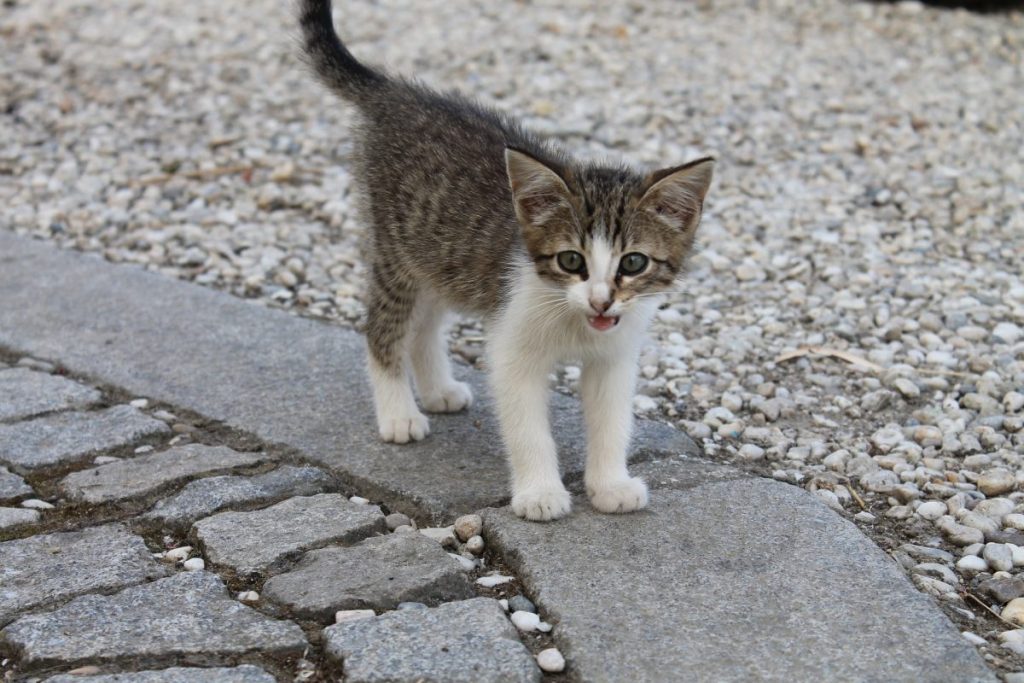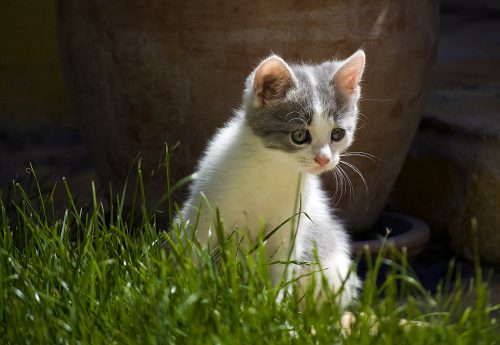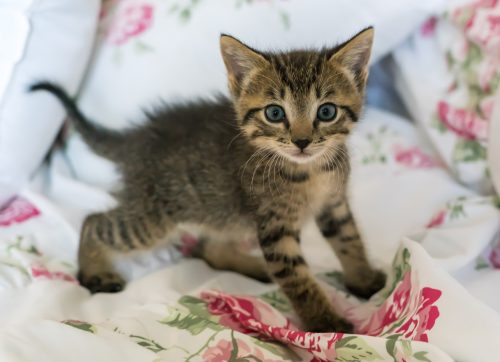Just like humans, there are a wide range of factors that can cause your kitten to cough. Sneezing and coughing infrequently may not be a big deal. However, milder cases of coughing may be due to things as simple as a common cold or allergies. The most common case of coughing usually points to asthma, which is also a common respiratory disorder that humans have.
Kittens often respond to stress with Upper Respiratory Infection (URI), which easily occurs in kittens who have just moved homes from the shelter to a new house. This is completely normal, and can be easily treated with greater care and attention to the way your kitten behaves over both short and long periods of time.
More serious reasons why your cat is coughing could be anything from more serious infections to pneumonia. When reading about possible causes, it is important to consider multiple factors like the intensity and breadth of the cough in order to determine its meaning as a symptom.
Common Colds or Allergies
Because kittens’ immune systems aren’t developed as fully as those of more mature felines, they are more prone to germs and infections. The flu or URI are the most common victims of kitty colds. These coughs are the most easily treatable with a few days’ rest or antibiotics.
The viruses behind them – feline herpesvirus and calcivirus – are usually to blame, and will not last longer than a week at most. With congestion, a kitten might not be able to smell his food and may stop eating, which would then mean there is a possibility of the kitten starving himself. Pay attention to how much your kitten is eating to ensure that he receives the nutrients he needs to recover.
To help ease the “get better” process, keeping kittens warm, playing, and properly breathing can make a huge difference during the resting period needed to overcome similar colds. A bit of exercise can clear kittens’ sinuses, keeping the system active. In drier climates, a humidifier may help kittens’ breathing systems as well. With this and a bit of rest, your kitten should be back to normal in about 4-5 days.
It’s also possible that allergies are causing your kitten to cough. Allergies to smoke, perfume, dust, pollen, mold, or food are often temporary and intermittent, but can insinuate upon interaction with certain substances. Air filters can help deter these things from getting in your cat’s airways.
Asthma
Cats who roam around outdoors often are susceptible to asthma symptoms. This is caused by irritation of your cat’s respiratory airways, which inflame and shrink as a result of mold, smoke, perfume, or pollen.
These airways can also get trapped from some forms of obesity or stress, making it difficult for kittens to breathe. If this seems like a viable cause of your cat’s cough, it’s better to act sooner than later since irritation and swelling can worsen quickly, completely blocking respiratory pathways.
Lung Disease or Infection
If your kitten came from a shelter or a place where a lot of cats live, it is likely that your pet may have caught an airborne, highly infectious disease. While most frequently found in dogs, felines can get kennel cough, or Bordetella bronchiseptica, as well. In this case, a developing symptom can be a dry hacking or honking cough, or even retching. Runny or stuffed noses, lethargy, and fever are other symptoms of this disease.
Outdoor kittens are sometimes susceptible to a lung infection from soil fungus, which can vary from region to region. You may want to check this out with a local vet if the cough is prolonged and seems correlated to outdoor activity.
Bad respiratory system diseases can evolve to cases of pneumonia or may even cause congestive heart failure. These are more serious cases in which case your kitten should be taken to a specialist or veterinarian for proper diagnosis and treatment. It’s better to be safe than sorry, and getting that initial check-up can prevent the disease from worsening while waiting to see if it will go away on its own.






